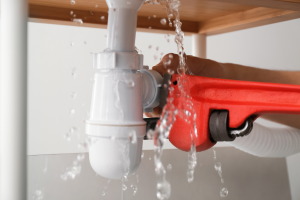The world of DIY home improvement offers exciting possibilities, especially for homeowners who enjoy tackling new projects. One area that can be both challenging and rewarding is electrical work. Having the right electrical tools on hand not only ensures safety but also significantly enhances the accuracy, efficiency, and results of your DIY projects. Here are five must-have electrical tools that every DIYer should consider adding to their toolkit. Each offers unique features designed to help with various aspects of electrical work, providing incredible value for homeowners.
Fluke 117 Electricians True RMS Multimeter
Every DIY electrical toolbox should start with a reliable multimeter, and the Fluke 117 is an excellent choice. This tool is designed to offer rapid and accurate readings, proving indispensable when troubleshooting electrical issues around the home. With its integrated non-contact voltage detection and the AutoV/LoZ function preventing false readings, it’s perfect for detecting voltage presence in breakers, switches, and wires. Its compact design, True RMS accuracy, and ease of use make it an excellent tool for novice and experienced DIY enthusiasts alike.
IRWIN VISE-GRIP Wire Stripping Tool/Wire Cutter
Next on our list is the IRWIN VISE-GRIP Wire Stripping Tool/Wire Cutter. This versatile tool allows you to cut, strip, and loop wire with precision and ease. The wire cutter is robust and durable, designed to cut copper wire or trim leads with precision. The wire stripper can handle wire from 10 to 22 AWG, while the looping holes easily loop wire for screw-on connections. Its comfortable grip and spring-assisted jaw opening make it user-friendly, reducing hand fatigue during extended use.
WORX WX255L SD Semi-Automatic Power Screw Driver
Driving screws manually can be tedious and time-consuming. The WORX WX255L SD Semi-Automatic Power Screw Driver is a game-changer. It features a rapid reloadable cartridge that houses six common screwdriver bits, so you’re always ready for any project. Its semi-automatic bit changer swaps bits on the fly, saving you time and hassle. Also, it has a front-facing LED light for enhanced visibility in low light conditions. This is a compact, yet powerful tool that makes installing fixtures, switch plates, and outlets a breeze.
Neiko 02037A Compact 4-in-1 Multi-Purpose Wire Service Tool
The Neiko 02037A serves as a wire crimper, bolt cutter, wire cutter, and wire stripper, making it an excellent addition to any DIY electrical toolset. This tool’s ergonomic design reduces hand fatigue, while its high-leverage design enables efficient cutting. The wire stripper can handle 22-10 AWG, providing clean and smooth operation. Whether you’re connecting wires with crimp connectors, cutting bolts, or stripping insulation, this tool offers the versatility needed for most electrical projects.
Klein Tools 11063W Wire Cutter/Wire Stripper
The Klein Tools 11063W is a tool that offers precision and ease of use when working with solid and stranded wire. This wire stripper cleanly cuts and strips wires from 8-20 AWG, and the tension-loaded wire grip correctly holds the cable while retaining cable geometry. It’s perfect for cutting and stripping speaker wire, as well as conducting repairs on small electronics. Its compound action stripping mechanism means you don’t need to worry about hand strain during lengthy projects.
Bottom Line
DIY electrical projects can be a fun and rewarding way to improve your home, but they require careful attention to safety and the right tools for the job. Each tool mentioned offers unique benefits that can help any homeowner tackle electrical projects with confidence. From the reliable Fluke 117
Q: I’m new to DIY. How can I ensure that I’m handling electrical projects safely?
A: Safety should always be your top priority when dealing with electrical projects. Make sure to turn off the power at the source before starting any work, use insulated tools, and wear safety gear such as gloves and safety glasses. Always follow instructions provided by manufacturers and, when in doubt, don’t hesitate to consult with a professional.
Q: What basic tools do I need to start doing DIY electrical work?
A: Some basic tools you might need include a multimeter to measure voltage and resistance, a wire cutter/stripper for handling wires, a power screwdriver for easy screw driving, and a flashlight for visibility. Each tool serves a specific purpose, so it’s essential to understand their functions and uses.
Q: Can the tools for DIY electrical projects be used for other DIY work?
A: Absolutely! While these tools are particularly helpful for electrical work, they often have broader applications. For example, a power screwdriver can be used in many different DIY projects, not just for electrical installations.
Q: What should I do if I find a DIY electrical project too challenging?
A4: If a project feels too complex or risky, it’s essential to know when to call in a professional. DIY is a great way to save money and learn new skills, but safety should never be compromised. Some tasks require specialized knowledge or tools, and it’s always better to consult a professional when unsure.


